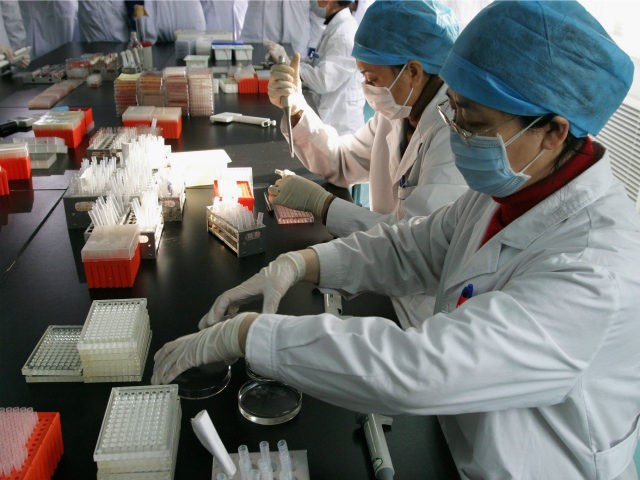The Chinese Communist Party (CCP) continued to forcibly collect Chinese citizens’ DNA samples en masse –part of its “world’s largest” police-run DNA database – during the Chinese coronavirus pandemic, especially in rural areas of China, human rights magazine Bitter Winter revealed Thursday.
In late 2017, China’s Ministry of Public Security expanded its already established, police-run DNA database to include all of China. Previously, the forensic database had focused primarily on Tibet and China’s northwestern territory of Xinjiang. According to a recent study that the Australian Strategic Policy Institute (ASPI) published on June 17, the CCP regime’s DNA collection differs from other countries’ police databases in that it targets people with “no history of serious criminal activity”:
Chinese authorities are deliberately enrolling tens of millions of people who have no history of serious criminal activity. Those individuals (including preschool-age children) have no control over how their samples are collected, stored and used. Nor do they have a clear understanding of the potential implications of DNA collection for them and their extended families.
According to the study, the CCP’s method of DNA collection “violates Chinese domestic law and global human rights norms. And, when combined with other surveillance tools, it will increase the power of the Chinese state and further enable domestic repression in the name of stability maintenance and social control.”
Citing recent evidence, Bitter Winter reports that this DNA collection has continued unabated throughout the ongoing Chinese coronavirus pandemic. Specifically, the CCP appears to have targeted rural Chinese communities for DNA samples in recent months.
On March 15, residents of a village near Guilin, a city in China’s southern Guangxi region, were instructed by village officials to report to the local CCP committee office the next day “to give blood samples.” According to the report, officials threatened that people who refused to give blood would have their pensions revoked and generally “have problems with the government and the police in the future.”
“Four police officers and four doctors were in the office that day, with tissues, glass bottles, syringes, iodine, and other medical items arranged on four tables,” a village resident told Bitter Winter, adding that officials registered his detailed personal information as he waited in line to give blood. Those administering the blood test told him it was to “find trafficked children and women more easily in the future.”
According to the magazine, residents undergoing mandatory DNA testing must present officials with “detailed personal information, including their ethnicity and [government] ID number.”
A student from a school in Taining, a county in the southeastern province of Fujian, told Bitter Winter that on December 20 “over 900 boys had to give their blood samples” to local police officers.
“The school did all this without the consent of children or their guardians, and allowed the police to test their blood arbitrarily,” a parent of one of the students told Bitter Winter.
“It is illegal and violates human rights. Teachers blindly followed officers’ orders, even though they are not professional medics. What should we do if our kids are infected with some virus? We also don’t know what is going to be done with these blood samples,” the concerned parent added.
A woman from Guangdong province in southeastern China told Bitter Winter recently that local police collected hair samples from her and other female colleagues’ at her workplace “for testing.”
“Officers cut our hair, taking photos of it next to our ID cards. They didn’t tell us why our hair was tested, and we haven’t been informed about the results of this ‘test’ yet. The government lacks transparency,” she said.

COMMENTS
Please let us know if you're having issues with commenting.